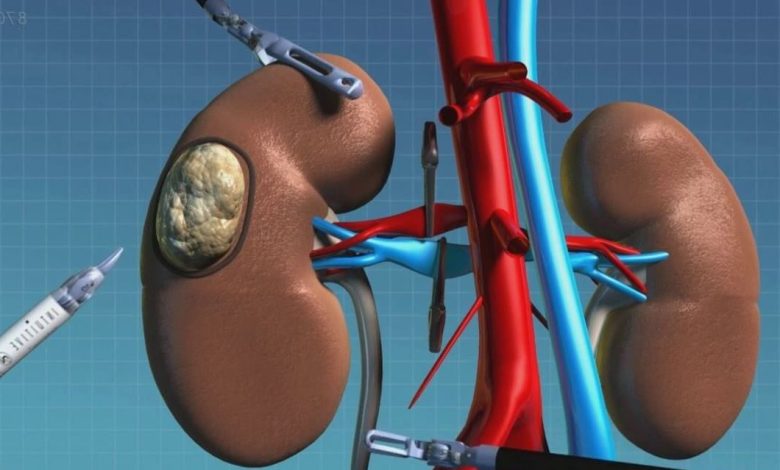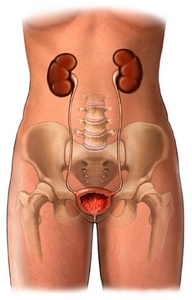Nephrectomy, removal of a kidney: what is this operation, causes, Contraindications, how they do it, what after

Description kidney removal
When radical nephrectomy removes the whole kidney. During the partial nephrectomy remove only part of the kidney.
Reasons for removal of a kidney
The kidney can be removed in the following cases:
- Have congenital defects of the kidney;
- Kidney Injury;
- Infection;
- Tumor;
- The selection of kidney transplant.
Possible complications of kidney removal
Complications are rare, but no procedure does not guarantee the absence of risk. Before, how to perform the removal of a kidney, you need to know about possible complications, which may include:
- Infection;
- Bleeding;
- Blood clots;
- Damage to the kidney organ close;
- Reaction to anesthesia;
- Leakage of urine from the remaining kidney tissue, if only part of the kidney removed.
Factors, that may increase the risk of complications:
- Smoking.
How is the removal of a kidney?
Preparation for the procedure
- Checking your blood. This is the case, if you want to be blood transfusion before or after surgery.
- Consult your doctor about the drugs taken. A week before surgery you may be asked to stop taking some medicines:
- Aspirin or other anti-inflammatory drugs;
- Blood thinners, such as clopidogrel (Plaviks) or warfarin.
- Do not eat or drink on the night before the procedure. Maybe, you have to take medication, to cleanse the bowel.
Anesthesia
At step used general anesthesia, which blocks the pain and the patient support in sleep.
Procedure kidney removal
The bladder catheter is inserted. It will make an incision in the middle or on the side of the abdominal cavity. Maybe, They must be removed ribs, to gain access to the kidney. Mochetochnik (tube, coming from the kidney to the bladder) and blood vessels will be cut off (in that case, if the whole kidney removed). Kidney (or part of the kidney) It will be removed. Section zashivaetsya.

Nephrectomy may be carried out by laparoscopy. In this case, the peritoneal cavity is pumped gas. In the area of the abdomen is a few small incisions. Laparoscope – a long tool with a camera on the end, It is inserted through one of the holes. This allows the doctor to see the internal structure of the abdominal cavity on a monitor screen. Surgical instruments for operation to be inserted through the other openings. To delete or kidney resection technique will be used, similar to open surgery. Removal of the kidney is removed through one of the incisions.
How long will the removal of a kidney?
About 2-4 hours.
Removal of the kidney: Will it hurt?
Anesthesia will prevent pain during surgery. Recovery, usually, painful. The pain is felt at the site of the incision. Laparoscopic procedure is considerably less painful.
Doctor will prescribe painkillers to reduce discomfort.
The average time of stay in the hospital after the removal of a kidney
Usually stay in the hospital after nephrectomy is 2-7 days. The exact time depends on the type of operation. The doctor can extend the period of stay, If there are complications.
Care after the removal of a kidney
Care in a hospital
After the operation, drip introduce the necessary fluids and pain medicine. It will be carefully monitored blood pressure, electrolytes, and fluid balance in the body. Frequently must install a urinary catheter for a period of time after the operation.
You will be asked to get up and start walking, as soon as the state of health allows it.
Home Care
Avoid strenuous exercise or strenuous activity for about six weeks after surgery.
Be sure to follow your doctor's instructions. Ask, when it is safe to shower, bathe, or to expose the surgical site to water.
If both kidneys are removed, It will be needed hemodialysis or kidney transplant.
Contact your doctor after kidney removal
After discharge from the hospital need to see a doctor, If the following symptoms:
- Signs of infection, including fever or chills;
- Redness, edema, increased pain, bleeding or discharge from the incision;
- Nausea and / or vomiting, which do not disappear after taking the prescribed medicines, and persist for more than two days after discharge from the hospital;
- Pain, which does not pass after taking pain medication appointed;
- Cough, shortness of breath or chest pain;
- Inability to urinate;
- Sudden weakness.
